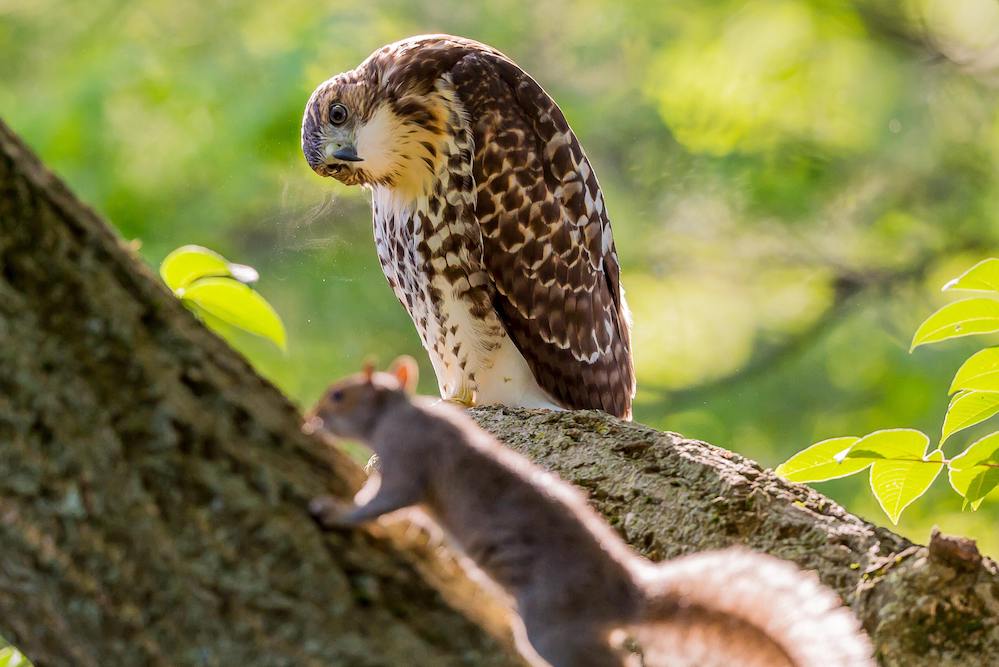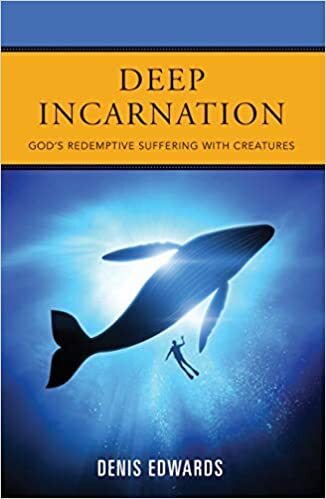
(Unsplash/David Morris)

(NCR graphic/Jesse Remedios and Toni-Ann Ortiz)
In the opening paragraphs of his new book, Deep Incarnation, Australian theologian Denis Edwards lays out a serious, two-pronged problem currently facing the Christian tradition. On the one hand, there is a pressing need to explore the Christological grounding of ecological theology, something 20th-century Christian eco-thinkers like Thomas Berry did not do. What relationship is there between the natural world — galaxies, mountains, seas, animals, bacteria — and the life, death and resurrection of Jesus?
On the other hand, there is the closely related need for a theological response to the loss and suffering that is part of an evolutionary view of the world. What is the relation of the suffering, loss, predation and death intrinsic to creation and the incarnation of Jesus Christ?
Edwards, who died in 2019, begins to answer these questions by detailing the work of five contemporary theologians: Niels Gregersen, Elizabeth Johnson, Celia Deane Drummond, Christopher Southgate and Richard Bauckham.
Already in 2001, Gregersen introduced the term "deep incarnation" to explain how the Christian belief in the mercy of God can be reconciled with the ruthlessness of the evolutionary process. For Gregersen, the cross of Christ reveals God's true character, one of "kenotic self-giving." But Christ's self-giving is likewise characteristic of the Creator God, who is therefore intimately present to creaturely suffering and actively involved in transforming it. In Ask the Beasts (2014), Creation and the Cross (2019), and earlier work, Elizabeth Johnson builds on Gregersen's theology of "deep incarnation." Especially significant is her emphasis on "deep resurrection" as an essential part of "deep incarnation." For Johnson, Christ is the "firstborn of all creation," so God will bring all creatures to final salvation, not humans only.
Among the other dimensions of "deep incarnation" highlighted by Edwards, I was especially taken by Drummond's emphasis on "deep pneumatology," as well as her use of "theo-drama" to express the essential existential activity of humans in the drama of creation; by Southgate's treatment of the suffering of creatures in an evolutionary world with a "compound evolutionary theodicy"; and by Bauckham's deft use of prepositions to explore the multiple meanings of incarnation, with God incarnate as Jesus of Nazareth but also as multiple other forms throughout the created world. Edwards also details Gregerson's incorporation of various important dimensions of all this work, with Jesus incarnate not only in his body, and in the church as the body of Christ, but also in the "depth and scope of the social and geo-biological conditions of the whole cosmos."

Edwards goes on to the work of two church fathers, Irenaeus of Lyons (130-198) and Athanasius of Alexandria (296-373), and of the great Vatican II theologian Karl Rahner to trace Christological readings of creation through earlier eras. While admitting that none of these three dealt with the ecological concerns of the 21st century, Edwards details the resonances between their work and certain aspects of contemporary deep incarnation. While Irenaeus certainly did not write of God's suffering with creatures, for example, he does preach a radically incarnational theology in which creation, incarnation and final fulfillment are all united. More than a century later, Athanasius gives the incarnational theology launched by Irenaeus its classical expression. Athanasius reconstructs the notion of divine transcendence in light of the biblical portrayal of God's self-humbling, kenotic love. This kenotic love, expressed in the cross, is the same love that is at work in the heart of all creation.
Rahner, of course, had the advantage of working 1,500 years after Athanasius, enabling him to consider questions like evolution, which had not yet arisen in the early church. Drawing especially on astronomy and cosmology, Rahner stresses the incomprehensible mystery of God in the unimaginable size of the universe. Rahner's overarching vision of creation and incarnation provides a foundation for more recent deep incarnational thinking.
Advertisement
In his final chapter, Edwards draws on the insights of these thinkers to propose a contemporary theory of deep incarnation in which the cross is the "sacrament of God's redemptive suffering with creatures." And the effects of the cross are present throughout all of cosmic history, even before the death and resurrection of Jesus.
Deep Incarnation offers a much-needed integration of Christology with creation theology. The book is based on Edwards' Duffy Lectures in Global Christianity at Boston College, and the very originality and nuance of the book make it a challenging read. So it is perhaps more appropriate for upper division and seminary level theology courses than for beginners. Those looking for an introduction to deep incarnation would do well to start with Elizabeth Johnson's Creation and the Cross.
I have two other concerns about the study. First, it's always tempting, in a faith-tradition with strong Greco-Roman roots, to see a proposal like Edwards's as the alternative to — the rebuttal of — an opposing position: deep incarnation versus the transcendent dominating sovereign. As helpful as a new reading of incarnation may be in healing this kind of theological rift, the very term "incarnation," even "deep incarnation," risks extending the polarization that Edwards and other contemporary theologians seek to transform. If there's an "in-carnation," then there must also be an "out-carnation," no matter how much better one alternative seems than the other.
Some theologians are proposing other possibilities. Eco-feminist theologian Catherine Keller uses the term "intercarnations" to describe profound material interconnections, "the multiplication and entanglements of any and all becoming flesh," rooted in the mystery of God. Those of us wedded to the dogmatic clarity of Christ's incarnation may want to reflect on Keller's complication of the concept.
I also worry that the deep incarnational emphasis on the suffering of creatures may reinforce a phenomenon called "Neo-Darwinism," an influential school of thought that makes Darwin's concept of the "survival of the fittest" — competition — the fundamental structure of existence. Edwards certainly uses the phrase "survival of the fittest" a number of times. But by intersecting the resurrection as well as the suffering and death of Jesus with all of creation, Edwards offers a perspective that vastly expands the notion of survival of the fittest. Instead of competition, we encounter a vision of reality based in the communion of all things in God, a deeply incarnational view of the entire cosmos. May this vision transform our lives.
[Marian Ronan is research professor of Catholic studies at New York Theological Seminar, a majority African American seminary in Manhattan. She blogs at marianronan.wordpress.com.]
Editor's note: Love books? Sign up for NCR's Book Club list and we'll email you new book reviews every week.







